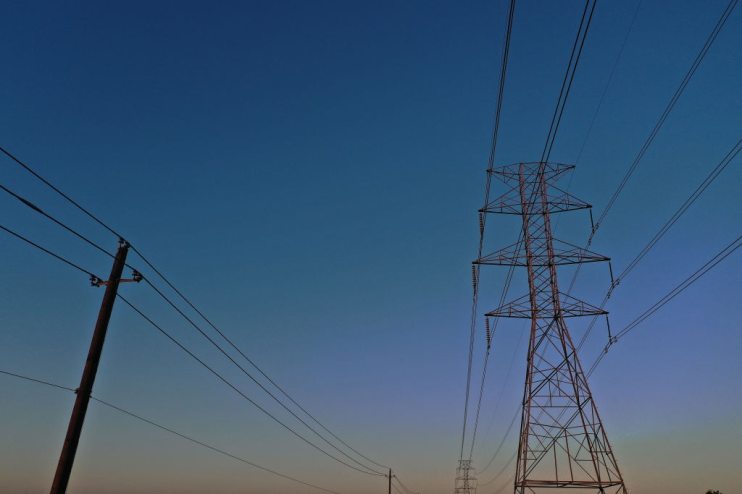Energy crisis will stretch into spring with Ofgem expected to hike household bills by £700

The energy crisis will extend into the new year, with UK households facing a “painful” £700 increase in their energy bills, warns Investec.
Analysts at the investment bank estimate the capped bill for average use could rise from £1,277 to £2,000 when the market regulator reviews the current limits next April.
The price hike would represent a 56 per cent increase in costs, and an approximately £60 per month rise in consumer bills.
The possibility of the price cap being raised next year has been established in the media for a while, with Ofgem increasing the price cap by 12 per cent in October and chief executive Jonathan Brearley confirming to BBC Radio 4’s Today Programme earlier this month “costs have to be passed on to consumers” where there are “legitimate price increases.”
Investec’s forecasting also follows Cornwall Insights gloomy predictions earlier this week, expecting the cap will increase to a slightly-less-steep £1,865 per annum before potentially soaring to £2,240 by next winter.
Nevertheless, the sheer scale of the price rises will have implications for households and the wider market.
Martin Young, senior analyst at Investec, argued £300 of the new total consists of taxes and government levies, which would give ministers some lieway to cushion the blow.
However, the price rises would still be “painful” for consumers.
He said: “Although well trailed, we anticipate this will still come as a shock to many, with implications for discretionary spend, inflation, and fuel poverty. An increase of this magnitude is likely to have political implications.”
Nathan Piper, head of oil and gas research at Investec, calculates the additional bill would come to around £18bn, which is roughly 0.8 per cent of 2021 GDP and 1.4 per cent of total consumer spending.
Consequently, he predicts this would add 1.8 percentage points to headline inflation in April 2022.
Gas prices are set to remain high this winter, following multiple rallies on UK and European gas benchmarks, amid shortages in supply and storage alongside increased demand in a colder-than-expected winter.
Piper also points to delays over certifying the Nord Stream 2 pipeline, which is unlikely to be greenlit until next summer at the earliest, amid sustained geopolitical uncertainty and France shutting down its nuclear power sites.
He warned: “This is not a price spike, we believe there is a high likelihood of both prolonged and even higher gas prices through winter with an impact that stretches out over the next two years.”
Ofgem told City A.M. it was too soon to speculate about price cap rises next year.
A spokesperson said: “We know that this is a very worrying time for consumers. The energy price cap has protected millions of customers on default tariffs from the full impact of the unprecedented increase in global gas prices this winter. It is too soon to predict the level of the price cap from April.”
Households to face further pain as costs of market carnage spread to consumers
The potential increase in the consumer price cap compounds the financial pressures facing UK households.
Alongside rising national insurance costs and surging inflation, Investec previously revealed that carnage across the UK energy industry combined with the de-facto nationalisation of Bulb – would leave UK energy consumers on the hook for a £3.2bn bill.
Wholesale costs have risen five-fold since the start of the year, with 25 UK energy firms collapsing in the past three months alone – directly affecting four million customers.
Sunken suppliers have pointed the finger at the consumer price cap – with Bulb Energy revealing in its administration announcement that the current cap restricted charges to consumers to 70p per therm, even though spiralling wholesale charges meant it cost £4 per therm to supply gas.
Ofgem currently reviews the limit every six months but is currently assessing whether this could be shortened to three months or even less in emergencies.
The market regulator is currently engaged in a consultation on the matter, following calls from energy bosses such as Keith Anderson at ScottishPower and from John Penrose, the MP who first proposed the cap in the House of Commons to reform the mechanism.
They fear the price cap could cause the market to revert to less than ten suppliers as more and more suppliers cease trading, reducing choice for consumers.
Ofgem’s findings are expected early next year.
It has already announced a raft of reforms to ensure energy firms hedge properly and are resistant to future market shocks.
However, with the crisis showing no sign of ending, Ofgem and the suppliers it regulates are likely to remain in the spotlight for months to come.
Last week, Citizens Advice accused Ofgem of a “catalogue of errors” earlier this month, in a report that claimed the regulator had failed to take action against “unfit” suppliers in poor financial health.